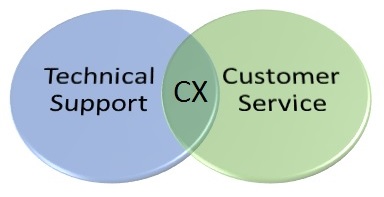Search posts by keywords:
Filter posts by author:
Related NEAT Reports
Other blog posts
posted on Sep 15, 2016 by Ivan Kotzev

The explosion of connected devices and IoT products promises a greater volume of technical support interactions and increased customer demand for proactive and always-on assistance through the lifecycle of a product. In turn, these requirements force customer experience (CX) providers to be involved with the product manufacturers at new levels, participating in development and testing, sales generation and supply, and finally in the technical support and out-of-warranty support of a product. And while in the consumer electronics world, such end-to-end solutions are still rare, in the enterprise product support world they are a norm.
Here I take a close look at how CSS Corp is developing its Enterprise Product Lifecycle support offering.
Developing a comprehensive offering
CSS Corp started its Enterprise Product Life-cycle services in 2003, offering technical support levels 1, 2, and 3 to networking OEMs making servers, switches, routers, and other telecommunication products. It has 24/7 multilingual support centers in India, Poland, Philippines, Costa Rica, Utah, and Mauritius.
The company realized that in a typical model, clients don’t get a unified view of what is happening with their product and have limited visibility of the business outcomes, apart from KPI tracking. To tackle this challenge, CSS Corp developed a complete product support process. The process begins with sales, for which CSS Corp generates leads, integrates and customizes Salesforce and reports, and offers real-time help to the sales engineers to answer technical questions while in front of the customer. Next come the welcome centers – a starting point for all initial customer interactions, identifying contract eligibility, scheduling product training, delivery status and other onboarding issues. These centers require 40-50 staff to handle a 10k monthly interaction volume.
After the initial helpdesk, CSS Corp offers technical support from L1 through L3 and out-of-warranty support. It also provides 24/7 white labelled NOC services for which equipment monitoring is required to maintain 99.999% uptime: for example, network connectivity for hospitals. The company also contacts customers for renewals, upgrades, and warranty extensions. CSS Corp currently supports 16 Enterprise Product Lifecycle clients, including an enterprise wireless OEM, a networking product manufacturer, and a global provider of voice communication platforms.
Support across channels is a must
Both sales and technical support are provided over multiple channels (chat, email, voice and online user communities and social media), and across functions. For example, the social media team collects sales leads from forums and blogs, but also accepts tickets and escalations. Phone calls dominate the U.S. market, generating ~65% of the traffic, while in Europe email is almost at par with phone calls at ~45%, with 15-20% of the global traffic via chat, including in-app messaging and co-browsing. Regardless of the channel, cases are logged via the client’s ticketing system: Siebel, Qlikview, Remedy, Cares, or Salesforce (which is growing in terms of the number of implementations).
Technical issues are complex and require next level of product integration
95% of reported problems are L2 and above, reaching even L4, which requires issue simulations or product testing in CSS Corp’s labs and eventually with the manufacturer. This complexity keeps the resolution time to an average of 4-5 days. A big part of CSS Corp’s holistic approach is their involvement with the manufacturer’s product and feature testing, particularly interoperability. The networking OEMs have tens of thousands of certified application and product partners, and CSS Corp conducts this testing and certification: for example, to ensure the proper functioning of a conference phone with the client’s PBX.
Enhancing the CX and cost optimization for a global telecom equipment manufacturer
For one of its oldest clients, with over 13 years of engagement, CSS Corp has reached just such a level of product and process integration. With this telecom equipment OEM, CSS Corp supports over 20 products lines in multiple languages at a global scale. Starting with a 15- member team, today the vendor has over 180 technical and engineering staff delivering product validation, testing, development, knowledge base, technical documentation, onsite, and remote support. Despite the increase in staff, CSS Corp achieved 50% reduction in TCO over the course of the engagement and reached 1.26 NPS against a 1.4 point target (the client uses reverse NPS 1 to 5 scoring, with 1 being the highest).
Getting ready for the consumer world
Enterprise product lifecycle support is not a volume business, with customers often working with a preferred engineer for years. So, preparing to take on mass consumer markets is a big challenge for vendors.
In order to handle the scale of a mass IoT consumer electronics market (where complexity and interoperability issues remain), vendors will have to employ predictive analytics, automation, and machine learning to prevent product faults, while using different channels such as self-service and user communities to keep costs down and deliver customer satisfaction.
With its Enterprise Product Lifecycle support offering, CSS Corp has taken the first key step in addressing that challenge.
